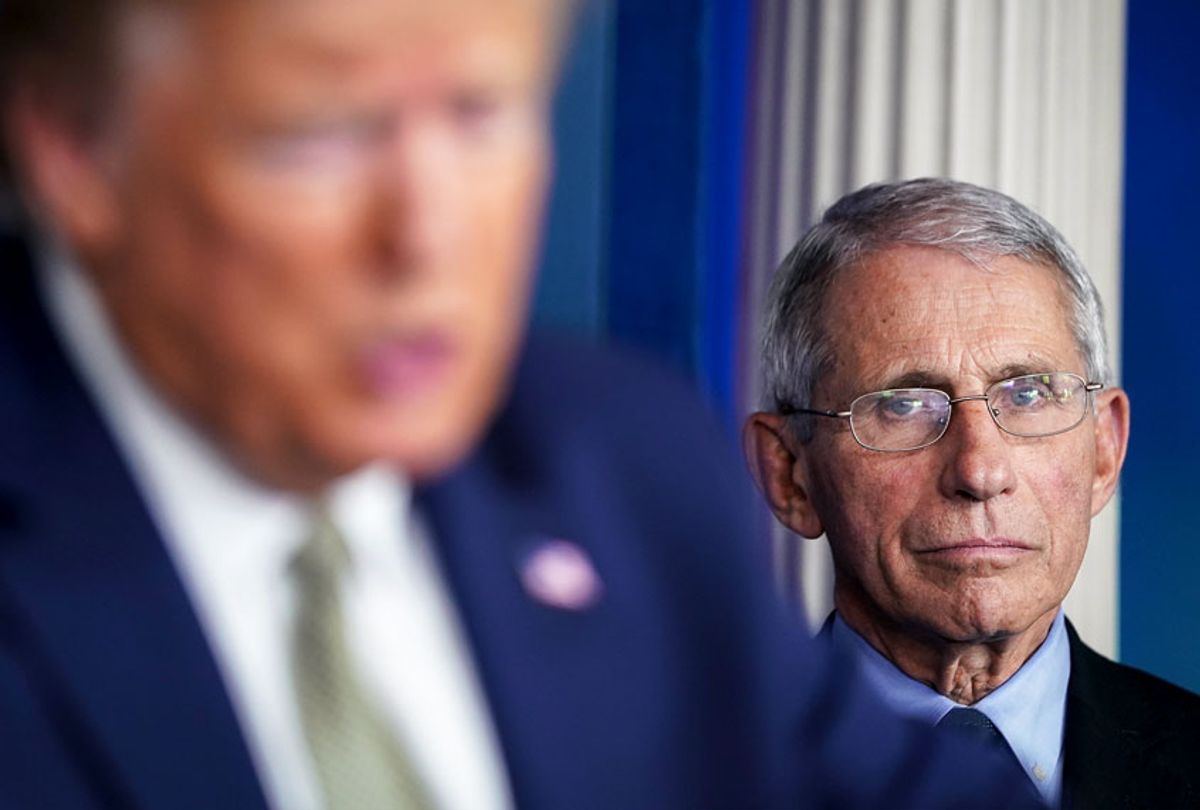Dr. Anthony Fauci, the director of the National Institute of Allergy and Infectious Diseases, indirectly parted ways with President Donald Trump on Thursday when he defended the World Health Organization (WHO).
"The WHO is an imperfect organization. It certainly has made some missteps but it has also done a lot of good," Fauci told Rosemary Barton of the Canadian Broadcasting Corporation (CBC).
He added, "I would hope that we could continue to benefit from what the WHO can do at the same time that they continue to improve themselves. I've had good relationships with the WHO and the world needs the WHO."
Fauci's statements put him at direct odds with the president, who has attempted to deflect from his own failures in addressing the coronavirus pandemic by casting the WHO as a scapegoat. After claiming that "China has total control" over the WHO, Trump terminated America's relationship with that organization last month. The president accused the WHO of misleading the world about the pandemic due to pressure from the Chinese government, saying that America spends $450 million each year on that organization while China only contributes $40 million. Trump said that he would redirect America's contribution to "other worldwide and deserving urgent global public health needs," although he did not specify what these would be.
This was not the first time that Trump attacked the WHO. When he announced in April that he was halting US funding to the organization, he accused the WHO of withholding "credible information" about human-to-human transmission of the coronavirus and said that they were guilty of "severely mismanaging and covering up the spread of the coronavirus." Neither of these accusations had any factual merit, nor did Trump's claim that the WHO had said the novel coronavirus was not communicable.
"President Trump's decision today to pull U.S. support for the World Health Organization is another example of his mismanagement of global affairs," Dr. Georges Benjamin, executive director of the American Public Health Association, told Salon by email last month. "It not only puts the health of Americans at risk, but it also undermines our other international responsibilities. If there is one thing we have learned from the COVID-19 pandemic, it's that an infectious disease anywhere is a risk to us all everywhere."
Dr. Russell Medford, Chairman of the Center for Global Health Innovation and Global Health Crisis Coordination Center, expressed a similar thought at the time, telling Salon that "as one of the world's leading public health agencies, the WHO plays an important role in those international cooperative efforts, not only against COVID-19 but against many other global diseases and health challenges. Policies that weaken, rather than enhance, international cooperation, run the very real risk of weakening our own nation's response to COVID-19."
Fauci has also been a popular target among right-wing figures who support Trump and oppose the strict policies proposed by public health officials in response to the coronavirus pandemic. Sen. Rand Paul, R-Ky., last month implied that Fauci views himself as the "end-all" about what is best for the economy. Fox News anchor Tucker Carlson challenged Fauci when he advised against reopening schools by saying, "Is Tony Fauci right about the science? Do we have any particular reason to think he is right?" Talk show host Rush Limbaugh has accused Fauci of being a "Hillary Clinton sympathizer" who wants "to get rid of Donald Trump," a claim that he made without any factual support.

Shares